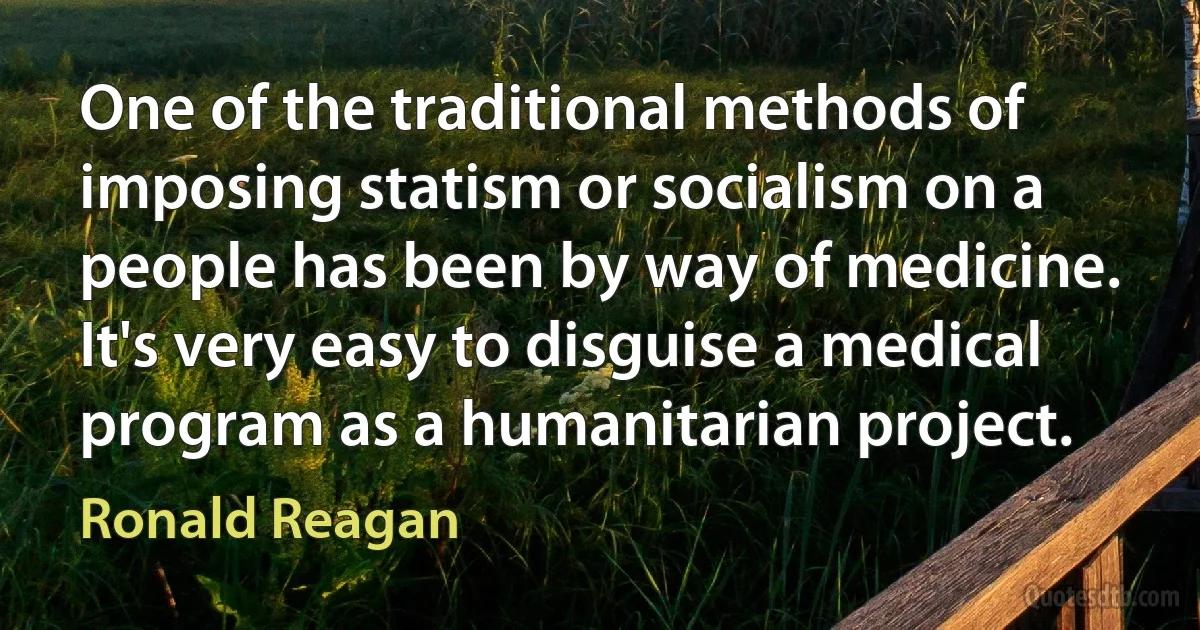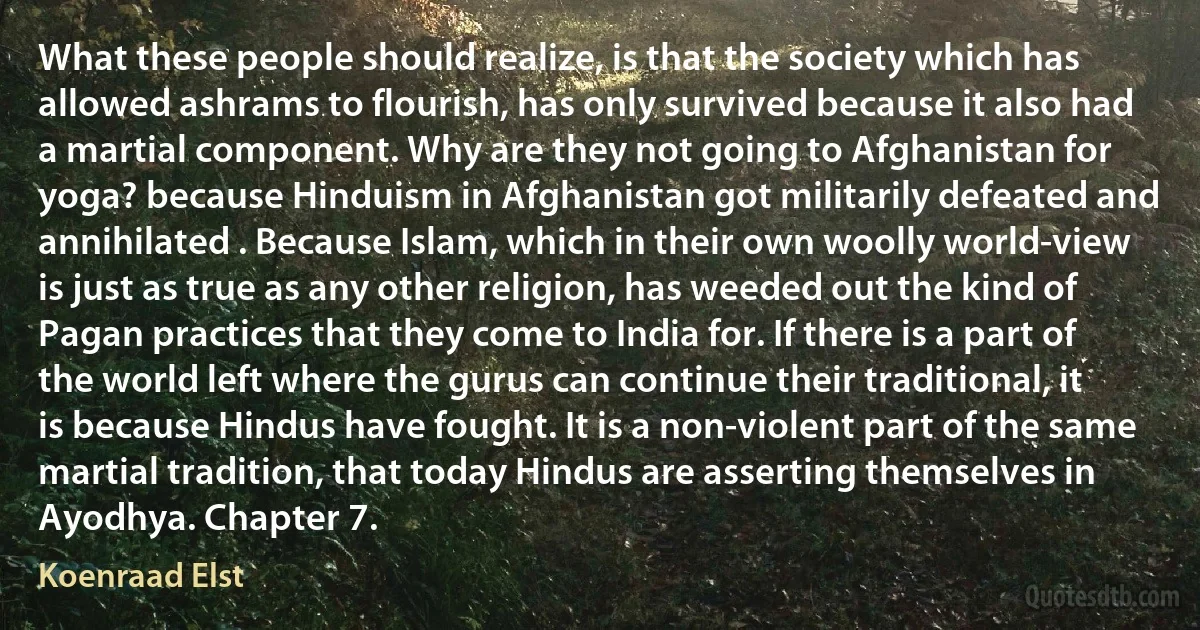Traditional Quotes - page 40
Our ignorance of the cosmos is too vast to commit to atheism, and yet we know too much to commit to a particular religion. A third position, agnosticism, is often an uninteresting stance in which a person simply questions whether his traditional religious story (say, a man with a beard on a cloud) is true or not true. But with Possibilianism I'm hoping to define a new position - one that emphasizes the exploration of new, unconsidered possibilities. Possibilianism is comfortable holding multiple ideas in mind; it is not interested in committing to any particular story.

David Eagleman
A failed 2000 bid for president gave rise to a successful run at the Republican nomination eight years later. In those campaigns, McCain became known for his openness with voters and the press. He thrived in town hall settings, and New Hampshire would kick-start his first bid for the White House and revive his sagging hopes in 2008 after his campaign had been left for dead. McCain's controversial choice of Alaska's then-governor, Sarah Palin, as his running mate, in many ways may have opened the door for a candidate like Trump. Palin never seemed to mesh with McCain's more reserved, traditional style, and her hits on the media and giddiness in attacking Obama and others in personal terms seemed to presage a candidate like Trump. So, it was no surprise when Palin endorsed the billionaire businessman during the 2016 cycle.

John McCain
This is not, I say, a sectarian question, it is a national question; it is not a question of aggrandizing or denuding any individual sect, it is a question of raising the efficiency of the Universities as national instruments of education; and I firmly believe that the infusion of new blood, which will result from the adoption of this policy, will speedily bring their teaching organization into greater harmony with the times... We wish to see the Universities thrown altogether open to the nation; and thus, while the nation derives the full benefit of the high traditional position of those great institutions, my hope is, that the freer and fuller life of the nation will in turn react on the Universities, and render them better qualified to fill their high position.

Henry Campbell-Bannerman
Knowledge of the various traditional worlds, thus of the relativity of doctrinal formulations and formal perspectives, reinforces the need for essentiality on the one hand and universality on the other; and the essential and the universal are all the more imperative because we live in a world of philosophical supersaturation and spiritual disintegration.

Frithjof Schuon
One cannot state too clearly that a doctrinal formulation is perfect, not because it exhausts the infinite Truth on the plane of logic, which is impossible, but because it realizes a mental form capable of communicating, to whoever is intellectually apt to receive it, a ray of that Truth, and thereby a virtuality of the total Truth. This explains why the traditional doctrines are always apparently naive, at least from the point of view of philosophers − that is to say, of men who do not understand that the goal and sufficient reason of wisdom do not lie on the plane of its formal affirmation; and that, by definition, there is no common measure and no continuity between thought, whose operations have no more than a symbolic value, and pure Truth, which is identical with That which "is" and thereby includes him who thinks.

Frithjof Schuon
[Ur-Fascism] depends on the cult of action for action's sake. Action being beautiful in itself, it must be taken before, or without, any previous reflection. Thinking is a form of emasculation. Therefore culture is suspect insofar as it is identified with critical attitudes. Distrust of the intellectual world has always been a symptom of Ur-Fascism, from Goering's alleged statement ("When I hear talk of culture I reach for my gun") to the frequent use of such expressions as "degenerate intellectuals," "eggheads," "effete snobs," "universities are a nest of reds." The official Fascist intellectuals were mainly engaged in attacking modern culture and the liberal intelligentsia for having betrayed traditional values.

Umberto Eco
Americans are primarily economics-oriented. The Masculine Principle is to realize higher ideas through art, warfare, Politics. Nothing could be further from the American ideal than that. The Feminine Principle is to nourish and preserve life - that is the American ideal. Americans therefore do not delight in an "empire" that continually lays claim to their wealth and constantly demands a reduction in their standard-of-living. In its traditional isolation, America needed no armies, garrisons, subventions to foreign countries, and Great Wars. The superficial polarization of America has brought the American People economic injuries, and thus confirmed it in its isolation.

Francis Parker Yockey
It's an absolute delight for me to play a naagin on screen. I have grown up watching, admiring and idolising Sridevi ma'am's Nagina and Nigahen and always wanted to play a similar role rooted in Indian traditional folklore. It's like playing an iconic character, which has always been so fascinating for the audience.

Shraddha Kapoor
All modern wars, even when their aims are the traditional ones, such as territorial aggrandizement or the acquisition of scarce resources, are cast as clashes of civilizations - culture wars - with each side claiming the high ground, and characterizing the other as barbaric. The enemy is invariably a threat to "our way of life," an infidel, a desecrator, a polluter, a defiler of higher or better values. The current war against the very real threat posed by militant Islamic fundamentalism is a particularly clear example.

Susan Sontag
This grave dissociation of past and present is the generic fact of our time and the cause of the suspicion, more or less vague, which gives rise to the confusion characteristic of our present-day existence. We feel that we actual men have suddenly been left alone on the earth; that the dead did not die in appearance only but effectively; that they can no longer help us. Any remains of the traditional spirit have evaporated. Models, norms, standards are no use to us. We have to solve our problems without any active collaboration of the past, in full actuality, be they problems of art, science, or politics. The European stands alone, without any living ghosts by his side; like Peter Schlehmil he has lost his shadow. This is what always happens when midday comes.

José Ortega y Gasset
When one considers the sublime disposition underlying the tmly universal educatiOn (of traditional India) ... then what IS or has been called religion in Europe seems to us to be scarcely deserving of that name. And one feels compelled to advise those who Wish to witness religion to travel to India for that purpose ....

Friedrich Schlegel
Today we hear much discussion about "overkill." The people who are talking "overkill" knowingly or unknowingly support the adoption of a minimum-deterrence strategy. In advocating that strategy, they are addressing the wrong problem. Instead of belaboring our ability to destroy the population of an aggressor nation, they should consider what we require to save American lives and property by preventing war, or by gaining a decision as quickly as possible if war occurs. That is the proper and traditional task of the United States armed forces. The counterforce strategy which we are pursuing and analyzing today provides our best prospect for success in that task.

Curtis LeMay
I don't think the issue's about being against gay marriage. It's about being for traditional marriage and articulating the reason that's important. You have to have a basic family structure. There's never been a civilization that has rewritten what marriage and family means and survived. So there is a sense in which, you know, it's one thing to say if people want to live a different way, that's their business. But when you want to redefine what family means or what marriage means, then that's an issue that should require some serious and significant debate in the public square.

Mike Huckabee
In practice, those who espouse this universal cultural tolerance are indeed inevitably selective; what they mean is nice, cosy, traditional cultures, not as they exist, but as they are pictured in the romantic imagination. And above all, they are interested in selective preservation within their own society. Not surprisingly, they dislike scientism, positivism, rationalism in their own society, and rather ignore the fact that these traits also constitute a culture, and one which, from the viewpoint of their initial and rather abstract starting point, has at least as good a claim as the cosiest of closed societies.

Ernest Gellner
If Germany, still obsessed by her traditional militarism, persists in her Deutschland über Alles, well-let the die be cast. We shall take up the atrocious War again at the point where we left it off. We must have the courage to prepare for it, instead of frittering away our strength in lies that no one believes, from conference to conference.

Georges Clemenceau
I guess that both the West and the world are getting to turn away from man - worshipping ideologies - Communism and secular individualism alike - and become converted to an Oriental religion corning neither from Russia nor from the West. I guess that this will be the Christian religion that came to the Greeks and the Romans from Palestine, with one or two elements in traditional Christianity discarded and replaced by a new element from India, I expect and hope that this avatar of Christianity will include the vision of God as being Love. But I also expect and hope that it will discard the other traditional Christian vIsion of God as being a jealous god, and that it will reject the self-glorification of this jealous god's "chosen people" as being unique. This is where India comes in, with her belief that there may be more than one illuminating and saving approach to the mystery of the universe.

Arnold J. Toynbee



